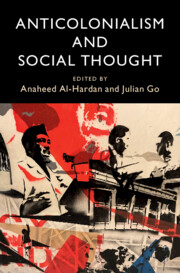
- Coming soon
- Publisher:
- Cambridge University Press
- Expected online publication date:
- July 2025
- Print publication year:
- 2025
- Online ISBN:
- 9781009607087
- Subjects:
- Social Theory, History of Ideas, Politics and International Relations, International Relations and International Organisations, Sociology
- Series:
- LSE International Studies

